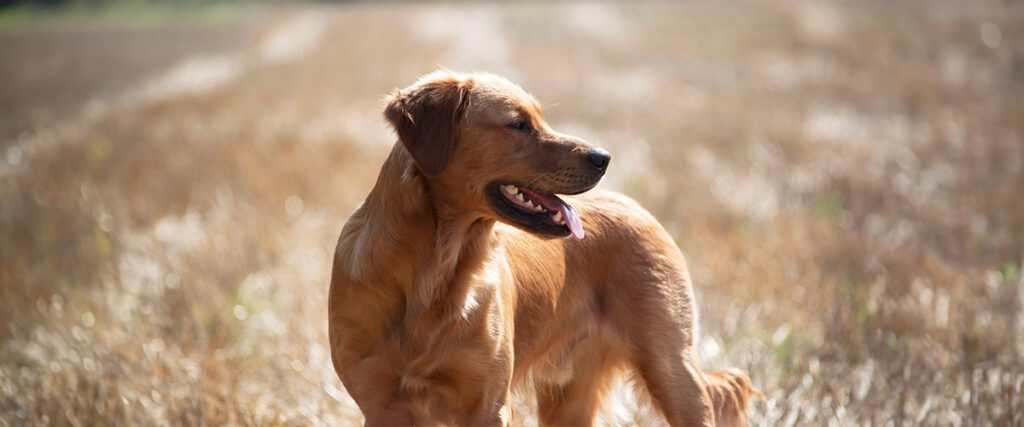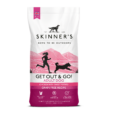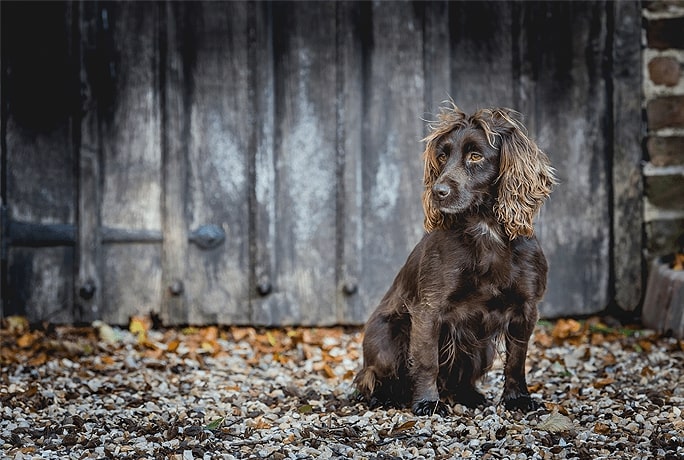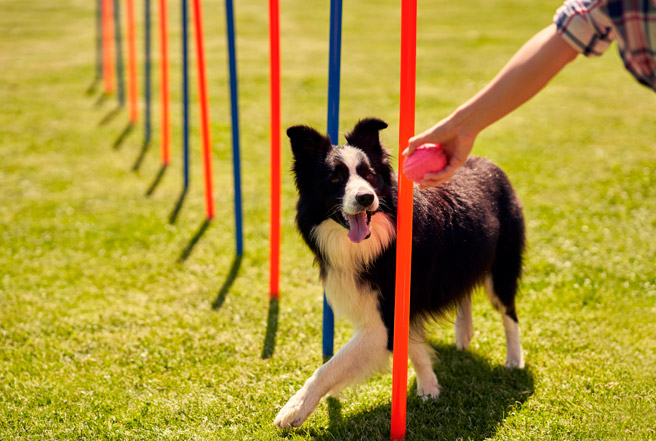Body condition – be the best!
Written by Rebekah Thompson, In-house Nutritionist, Skinner’s
Our dogs are very important to us and of course we all want to take the best care of them. An important part of this is monitoring their weight and ensuring that they are at their ideal body condition as much as possible. An ideal body condition means less stress on body parts such as the organs and joints and can both encourage a longer life span and better quality of life too.

So how can we do this? Here are some pointers that can help you keep on top of your dog’s weight.
Is my dog at an ideal body condition? – To check your dog’s current body condition, we would recommend using a chart, such as the UK Pet Food Dog Size-O-Meter (https://www.ukpetfood.org/resource/dog-weight-size-o-meter.html) which gives some excellent guidance on how to check your dog’s shape. If you are at all unsure, speak to your vet who would be glad to score your dog for you.
Yikes! My dog is overweight! – Don’t panic! If your dog falls into the overweight category then here are some helpful tips to get your furry companion swinging back into the ideal range.
1. Feed your dog the guideline portion of food for their ideal weight rather than their current weight, and be sure to measure this out using calibrated, digital scales if possible, rather than a cup. It’s very easy to overfeed if using a cup to measure out your dog’s food; this will contribute towards weight gain and also increase your food bill too!
2. Is your dog spayed/ neutered? If so, we would recommend that you reduce their feeding ration by approximately 10%.
3. What additional food/treats does your dog have? It is very important that these are factored into the dog’s daily rations so that the dog is not overfed. Some treats can have a surprisingly high calorie content so be sure to factor this in and also ensure that treats/complimentary food does not take up more than 10% of your dog’s daily food intake.
4. Another good tip regarding treats is to set aside 10-20 grams of your dog’s food and at anytime you would usually offer a treat, take some kibble from the small portion set aside. This way your dog can still be rewarded, but you can be sure that they are always within their feeding guidelines.
5. If your dog is food-driven, playing games with them can help them to not feel so hungry between meals. There are some great books out there on keeping your dog mentally stimulated and there is a plethora of activities to do with your dog, such as agility, canicross or exploring local footpaths. If your dog is older and arthritic, then hydrotherapy can be a great way to exercise them without putting excess strain on their joints.

My dog is underweight, what should I do? – some dogs, especially juvenile males, can run rather too lean and it is important to adjust their feeding regime to support steady increase of condition.
1. Again, it’s important to doublecheck how much you’re feeding. Weigh the food out using digital scales. The feeding guide is a guide so provided your dog is passing firm stools, try increasing the portion by 10%. However, if this increase makes the stools loose, reduce the portion again.
2. If it’s not possible to increase the portion without making your dog’s stools loose, try moving up to a higher fat diet such as Get Out & Go! Extra Energy. This way you can feed more calories in the same volume of food.

Extra Energy
Dry dog food providing nutrition for activity & adventure
£14.49 – £65.99
3. Try breaking the day’s portion into three or even four meals a day. This will mean your dog is feeding little and often which can help to increase digestibility and help your dog retain weight.
Feeling smug, my dog is at ideal body condition – huzzah! That’s great news! But you can’t rest on your laurels, as a dog’s requirements can slightly change according to the time of year, changes to their activity levels or a host of other reasons. Therefore it’s vital that you continue to monitor their weight so that you can adjust their portion to suit their individual requirements.
If you are concerned about your dog’s weight, we would recommend speaking to your vet in the first instance. Some stubborn weight issues can be a symptom of underlying problems so it’s important to address this as soon as possible.
If you have any questions about your dog’s diet, our nutrition team would be glad to hear from you. You can contact them at nutritionsupport@skinners.co.uk or by calling the office on 01379 384247.



